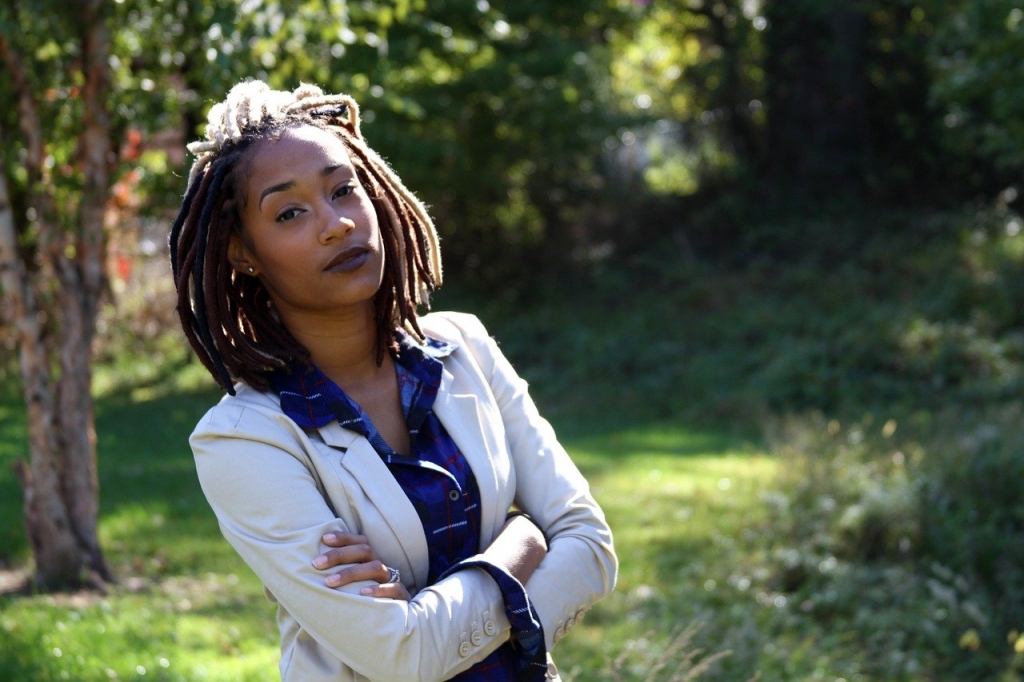
Lawmakers in California recently passed a bill that protects black employees and students from discrimination based on hairstyles like afros, dreadlocks, braids, and twists. Notions that hairstyles associated with blackness are somehow unprofessional or unappealing are being recognized as inherently discriminatory and based in national history that has for far too long equated blackness and associated traits with inferiority. One simple way to see this, as the Senator who proposed the bill pointed out, is by searching for the phrase “unprofessional hairstyles” on Google images – the results are overwhelmingly pictures of black women with their natural hair or in braids or twists. Rather than permit black workers and students to continue to be marginalized and punished for their racial identity, California Senator Holly Mitchell proposed what is called the CROWN Act (Create a Respectful and Open Workplace for Natural Hair), which passed 69 to 0 in the state Senate.
The CROWN Act seeks to prohibit employers and schools from enforcing grooming policies that are facially neutral, but actually have a disproportionate, negative impact on people of color, who have to spend excessive time and money on ways to alter their hair to fit Eurocentric standards of professionalism. Specifically, the CROWN Act would update the definition of the race for existing law to include characteristics that are historically associated with race, including hair texture and protective hairstyles. Suppose Governor Gavin Newsom signs the bill into law, and there is no reason to think he will not. In that case, California will be the first state to prohibit racial discrimination based on people’s natural hairstyles.
The key elements of the CROWN Act

One of the key elements of the CROWN Act is that it highlights a failure of federal anti-discrimination law. Federal courts have ruled that anti-discrimination law protects black people from discrimination based on an Afro hairstyle, but not based on other natural hairstyles, or braids, twists, or locks. There have been many incidents and court cases regarding the issue of race-based hair discrimination. Taking a look at some of them might help to demonstrate the significance of signing this new bill into law in California.
In the seminal case regarding black women’s hair, Rogers v. American Airlines, the plaintiff, Renee Rogers, a black woman, worked for American Airlines for about eleven years. A policy of theirs banned many of their employees from wearing an all-braided “corn row” hairstyle, and when Rogers went to work one day in September of 1980 with braided hair, she was asked to style her hair differently. Rogers argued that this constituted racial discrimination because cornrows have a particular significance for black American women given their reflection of culture and history. The court dismissed the idea that cornrows should be protected under Title VII, saying that the style was an “easily changed characteristic.” However, they conceded that if the hairstyle in question were an afro, there could be a race discrimination claim under Title VII. This somewhat arbitrary distinction is unfortunate because many black women do not want to wear their hair as an afro within a work context due to the statement, intended or not, it makes to others. Cornrows and other ethnic hairstyles would be an alternative option, but this case said those were not protected. Even trying to tie hair back in a bun is very difficult because of the thickness of many black women’s hair. This leaves black women with very few options, one being to chemically straighten their hair with expensive products.
In a much more recent case from 2010, Chastity Jones, a black woman, contended with racial discrimination based on her hairstyle when an insurance company in Alabama rescinded her job offer because she refused to remove her dreadlocks. The company’s grooming policy stated that employees have to dress and groom in a way that reflects a businesslike and professional image. Their human resources manager, a white person, told Jones that dreadlocks “tend to get messy.” When this case was brought to a federal appeals court, it was ruled that dreadlocks were not an immutable characteristic of race and therefore prohibiting them was not unlawful employment discrimination. Of course, this followed in the footsteps of Rogers v. American Airlines. The U.S. Supreme Court refused to hear an appeal, so the decision stood.

In an even more recent incident that sparked national outrage from civil rights advocates in December of 2018, a referee at a high school wrestling match in New Jersey forced an athlete to cut his locks if he wanted to compete. The referee, a white person, told 16-year old Andrew Johnson that his hair did not comply with the rules and so Johnson would have to cut it or forfeit. Johnson, although it hurt him, chose to cut his hair and he won the match, giving his school a push towards victory. Images of the event spread across the country, sparking debate about racial injustice. The image of Johnson’s tear-stained face has not left the national conscience. The incident is under investigation by multiple authorities.
Senator Mitchell has made remarks about the sheer volume of feedback she has received about the CROWN Act from constituents upset by the racial discrimination they or their loved ones have faced based on their hairstyles. It is past time for the law to recognize how racial injustices continue to be sanctioned in today’s world, and it seems like this bill is a good step towards that recognition. California is not the only place to have thought of such a policy. New York City has a policy that protects against discrimination based on hairstyles like cornrows, Afros, and fades. According to the New York Commission on Human Rights, “Black hairstyles are protected racial characteristics under the [New York City Human Rights Law] because they are an inherent part of Black identity.” New York and New Jersey have proposed similar legislation to the CROWN Act, as well. Hopefully, more states will follow and employees and students throughout the nation can be free from hair-based racial discrimination. Beyond that, perhaps the CROWN Act marks the turning of a page, in at least this little corner of society, in the form of taking a step towards the dismantling of harmful social norms that only serve to disrespect, devalue, and divide.
If you believe you have suffered hair-based racial discrimination at your workplace, Then you are entitled to a race discrimination Employment settlement, and you can contact a discrimination lawyer to discuss your options.



